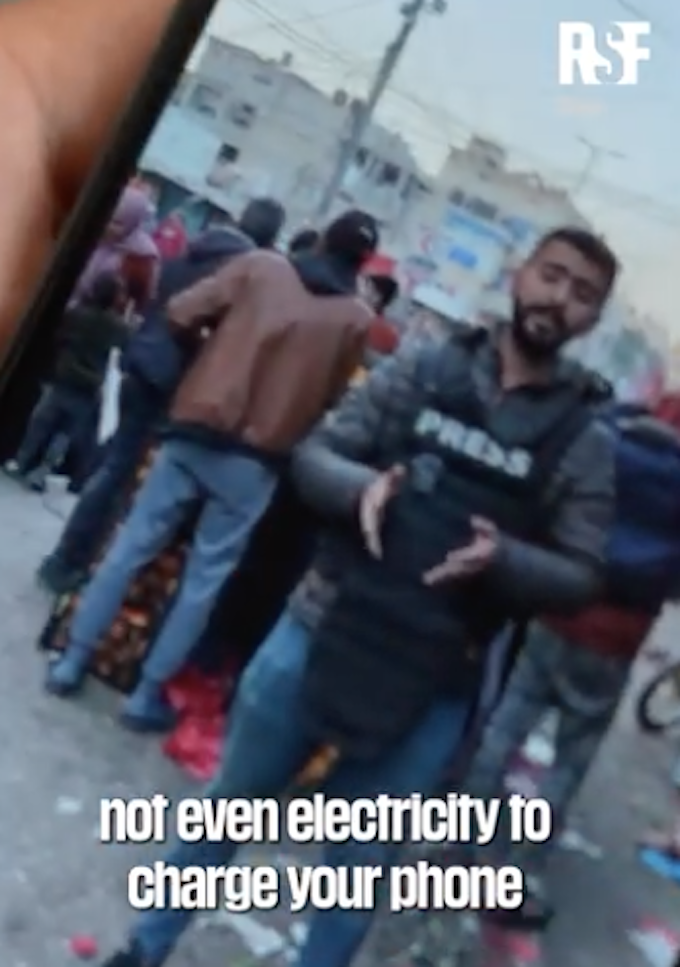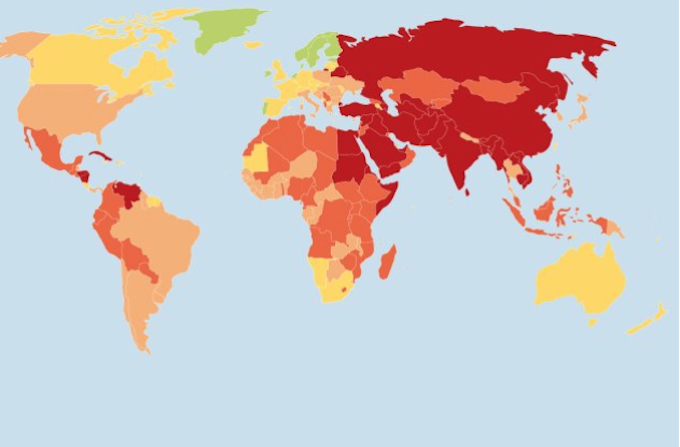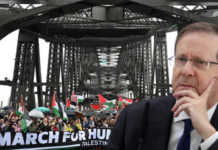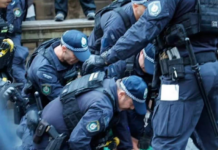
New Zealand has slumped to an unprecedented 19th place in the annual Reporters Without Borders 2024 World Press Freedom Index survey released today on World Press Freedom Day — May 3.
This was a drop of six places from 13th last year when it slipped out of its usual place in the top 10.
However, New Zealand is still the Asia-Pacific region’s leader in a part of the world that is ranked as the second “most difficult” with half of the world’s 10 “most dangerous” countries included — Myanmar (171st), North Korea (172nd), China (173rd), Vietnam (175th) and Afghanistan (178th).
- READ MORE: The full 2024 RSF World Press Freedom Index
- Silencing the messenger: Israel kills journalists while the West merely censors them – David Robie
- RSF calls on NZ Prime Minister to reaffirm his government’s commitment to press freedom
- Timor-Leste makes top ten in 2023 World Press Freedom Index
New Zealand is 20 places above Australia, which is ranked 39th.
However, NZ is closely followed in the Index by one of the world’s newer nations, Timor-Leste (20th) — among the top 10 last year — and Samoa (22nd).
Fiji was 44th, one place above Tonga, and Papua New Guinea had dropped 32 places to 91st. Other Pacific countries were not listed in the survey which is based on media freedom performance through 2023.
Scandinavian countries again fill four of the world’s top countries for press freedom.
No Asia-Pacific nation in top 15
No country in the Asia-Pacific region is among the Index’s top 15 this year. In 2023, two journalists were murdered in the Philippines (134th), which continues to be one of the region’s most dangerous countries for media professionals.
In the survey’s overview, the RSF researchers said press freedom around the world was being “threatened by the very people who should be its guarantors — political authorities”.
This finding was based on the fact that, of the five indicators used to compile the ranking, it is the ‘political indicator’ that has fallen the most , registering a global average fall of 7.6 points.
Covering the war from Gaza. Video: RSF
“As more than half the world’s population goes to the polls in 2024, RSF is warning of a
worrying trend revealed by the Index — a decline in the political indicator, one of five indicators detailed,” said editorial director Anne Bocandé.
“States and other political forces are playing a decreasing role in protecting press freedom. This disempowerment sometimes goes hand in hand with more hostile actions that undermine the role of journalists, or even instrumentalise the media through campaigns of harassment or disinformation.
“Journalism worthy of that name is, on the contrary, a necessary condition for any democratic system and the exercise of political freedoms.”
Record violations in Gaza
At the international level, says the Index report, this year is notable for a “clear lack of political will on the part of the international community” to enforce the principles of protection of journalists, especially UN Security Council Resolution 2222 in 2015.
“The war in Gaza has been marked by a record number of violations against journalists and media since October 2023. More than 100 Palestinian reporters have been killed by the Israeli Defence Forces, including at least 22 in the course of their work.”
UNESCO yesterday awarded its Guillermo Cano world press freedom prize to all Palestinian journalists covering the war in Gaza.
“In these times of darkness and hopelessness, we wish to share a strong message of solidarity and recognition to those Palestinian journalists who are covering this crisis in such dramatic circumstances,” said Mauricio Weibel, chair of the international jury of media professionals.
“As humanity, we have a huge debt to their courage and commitment to freedom of expression.”
Palestinian journalists covering Gaza awarded the 2024 @UNESCO / Guillermo Cano World #PressFreedom Prize.https://t.co/9Zt7qge6yo #WorldPressFreedomDay pic.twitter.com/4liqPSdXtJ
— UNESCO 🏛️ #Education #Sciences #Culture 🇺🇳 (@UNESCO) May 2, 2024
Occupied and under constant Israeli bombardment, Palestine is ranked 157th out of 180
countries and territories surveyed in the overall Index, but it is ranked among the last 10 with regard to security for journalists.
Israel is also ranked low at 101st.

Criticism of NZ
Although the Index overview gives no detailed explanation on this year’s decline in New Zealand’s Index ranking, it nevertheless gives an overview of the media freedom status and then concludes that the country had “retained its role as a press freedom model”.
While the NZ status had declined, many other comparable nations had deteriorated further.
Last December RSF condemned Deputy Prime Minister Winston Peters in the newly elected rightwing coalition government for his “repeated verbal attacks on the media” and called on Prime Minister Christopher Luxon to reaffirm his government’s support for press freedom.
“Just after taking office . . . Peters declared in an interview that he was ‘at war’ with the media. A statement that he accompanied on several occasions with accusations of corruption among media professionals,” said RSF in its public statement.
“He also portrayed a journalism support fund set up by the previous [Labour] administration as a ’55 million dollar bribe’. The politician also questioned the independence of the public broadcasters Television New Zealand (TVNZ) and Radio New Zealand (RNZ).
“These verbal attacks would be a cause of concern for the sector if used to support a policy of restricting the right to information.”
Cédric Alviani, RSF’s Asia-Pacific bureau director, also noted at the time: “By making irresponsible comments about journalists in a context of growing mistrust of the New Zealand public towards the media, Deputy Prime Minister Peters is sending out a worrying signal about the newly-appointed government’s attitude towards the press.
“We call on Prime Minister Christopher Luxon to reaffirm his government’s support for press freedom and to ensure that all members of his cabinet follow the same line.”
Pacific Media Watch compiled this summary from the RSF World Press Freedom Index.







































